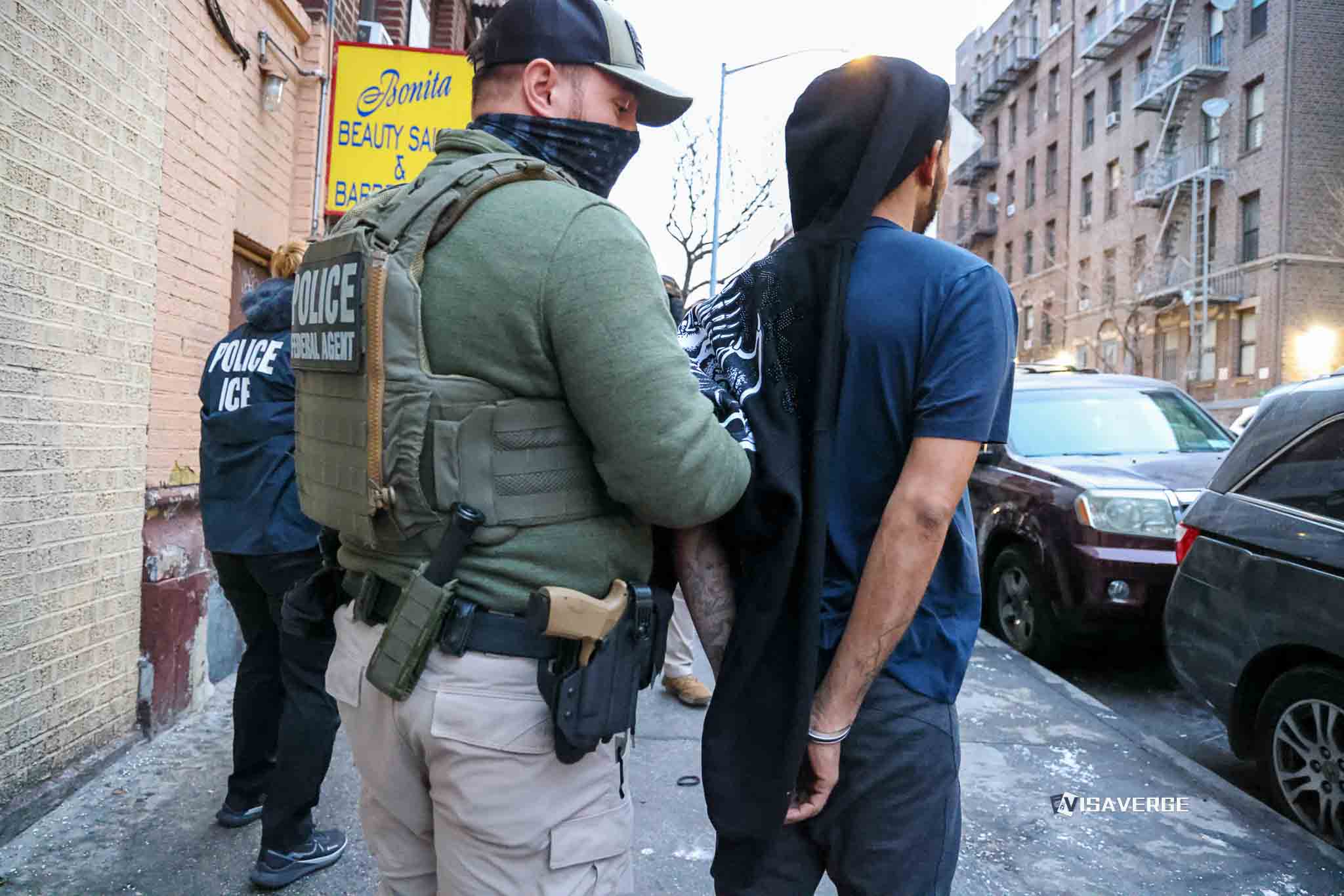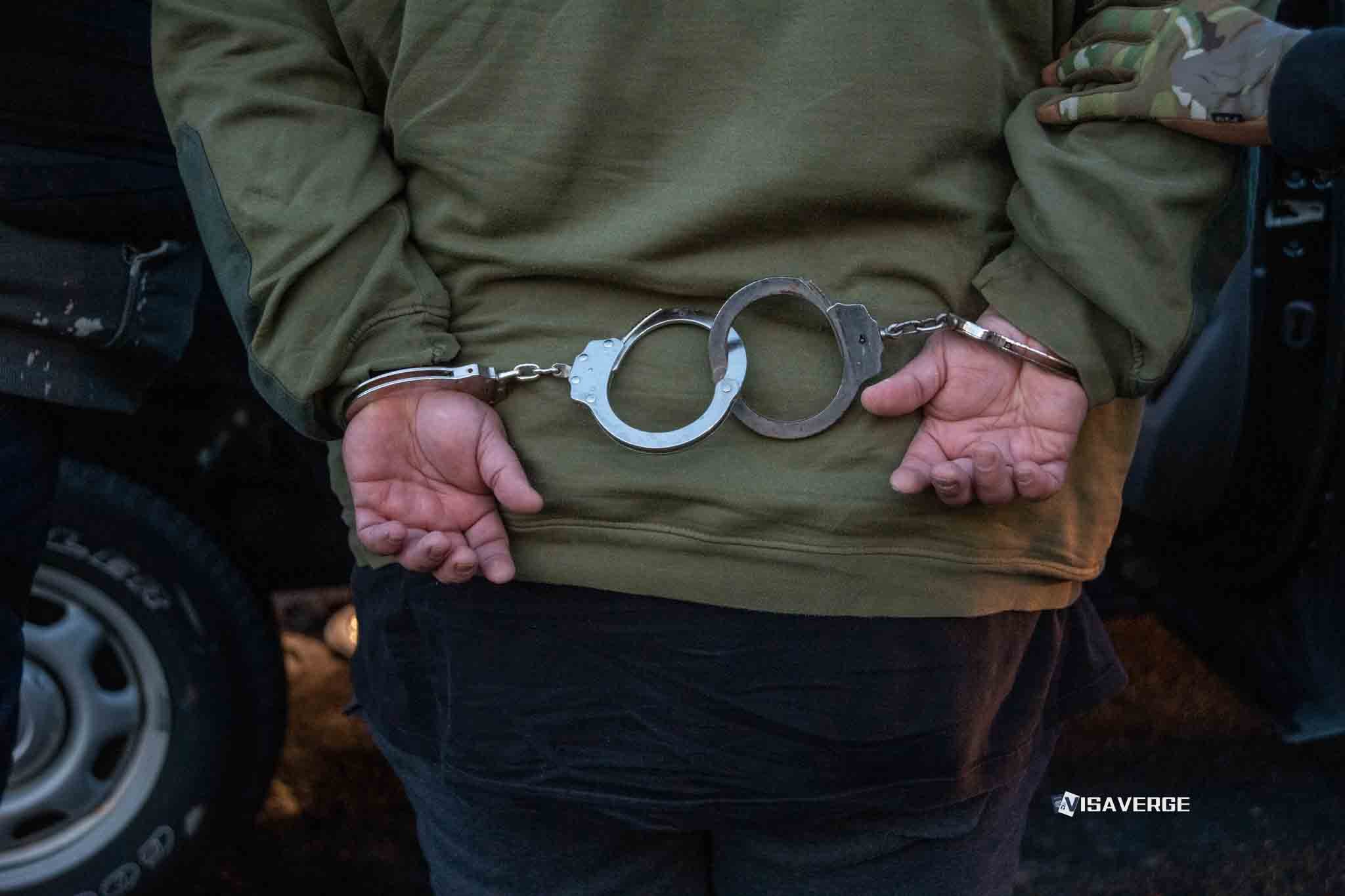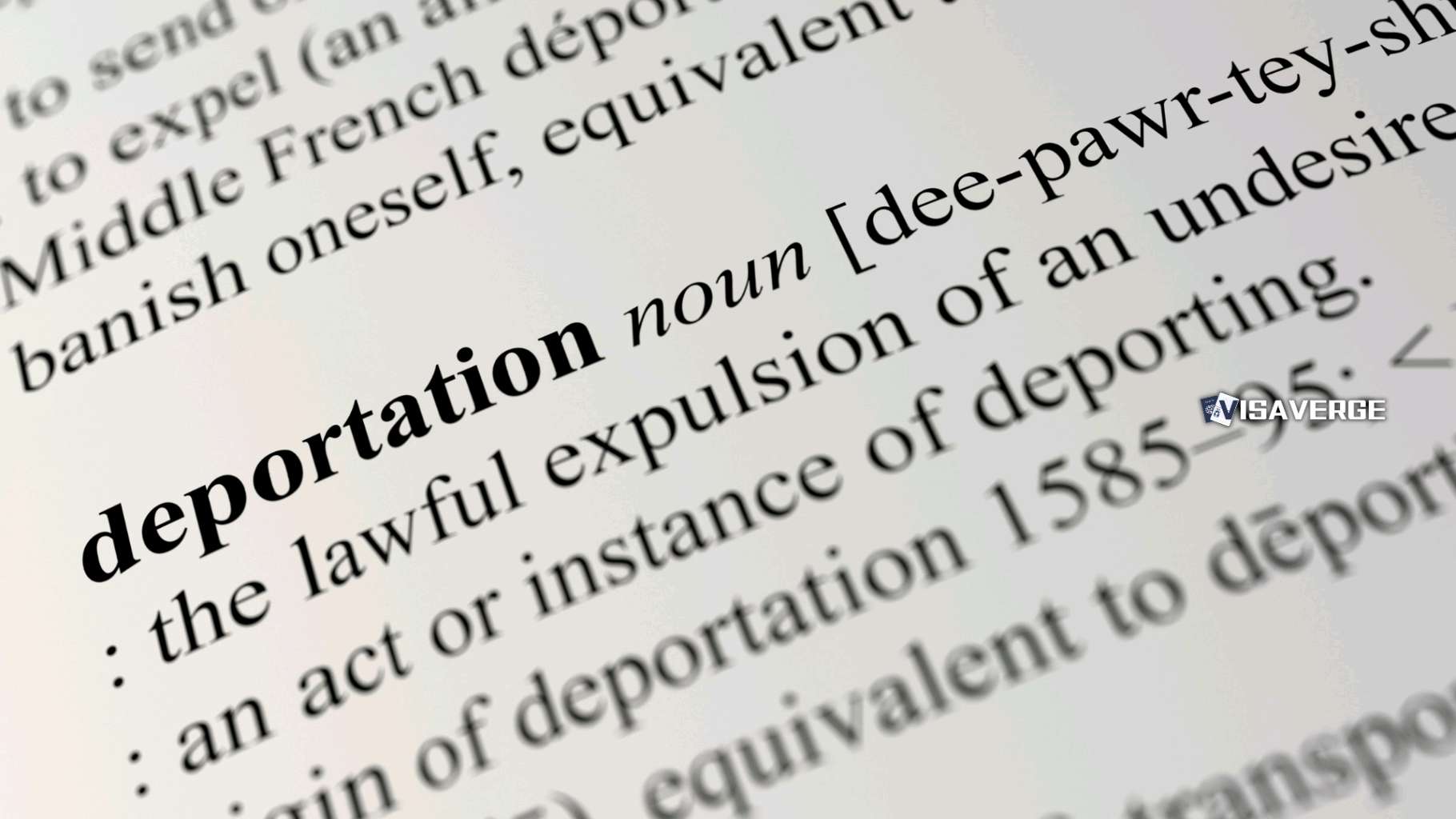(MARYLAND) Norma Reyes-Carbajal, a 33-year-old woman from El Salvador 🇸🇻, is being held at the George H. Fallon ICE Detention Center in Maryland. She is awaiting deportation after being convicted of voluntary manslaughter and using a handgun in a violent crime. The conviction stems from a 2019 shooting in Prince George’s County, Maryland, involving her husband. As of August 7, 2025, Reyes-Carbajal has a final order of removal, and her deportation to El Salvador 🇸🇻 is pending.

Critical Details and Current Status
Reyes-Carbajal’s case stands out because it involves a serious violent crime. She was found guilty of voluntary manslaughter after a fatal shooting that led to her husband’s incarceration at the Roxbury Correctional Institution in Hagerstown. While her husband remains in prison, Reyes-Carbajal is in ICE custody, waiting for the final steps before being sent back to El Salvador 🇸🇻.
ICE officials in Baltimore have pointed to her case as an example of their focus on removing noncitizens with significant criminal histories. Betsy Smith, spokesperson for the National Police Association, said,
“Seventy-three percent of current ICE detainees have a significant criminal history.”
This statistic highlights the agency’s current priorities.
There is no public date for Reyes-Carbajal’s deportation. She remains in detention while ICE works with Salvadoran authorities to arrange travel documents and flights. This process can take weeks or even months, depending on how quickly both countries can coordinate.
Deportation Process and Policy Context
Once a final order of removal is issued, ICE must coordinate with the receiving country—in this case, El Salvador 🇸🇻—to secure travel documents and schedule transportation. Detainees like Reyes-Carbajal usually stay in ICE custody until these arrangements are complete. According to analysis by VisaVerge.com, this process can be delayed by paperwork, international cooperation, or logistical issues.
The current administration has increased efforts to deport people with criminal convictions, using both military and federal resources to speed up removals. However, these efforts sometimes face delays due to legal and practical challenges. Baltimore County, where the crime happened, is a federal sanctuary jurisdiction. This means local law enforcement may not always cooperate with ICE, but a final federal removal order still allows deportation to move forward.
Stakeholders and Public Statements
Several key groups are involved in cases like this:
- ICE (Immigration and Customs Enforcement): Handles detention and removal, focusing on people with violent crime convictions.
- National Police Association: Betsy Smith has called for strict enforcement of deportation orders in cases involving violent crimes by undocumented immigrants, saying public safety is at risk.
- Maryland Officials: As of August 7, 2025, no direct statements have been made by Maryland state officials about Norma Reyes-Carbajal’s case. Still, the topic of violent crimes involving noncitizens remains a hot issue in public and political discussions.
Broader Policy and Human Rights Implications
The Department of Homeland Security has extended Temporary Protected Status (TPS) for El Salvador 🇸🇻 until September 9, 2026. However, this protection does not apply to people with serious criminal convictions, such as Reyes-Carbajal. TPS is meant for people who cannot safely return to their home country due to war, disaster, or other dangers, but it excludes those with certain criminal records.
International human rights groups, including UN experts, have raised concerns about recent deportations to El Salvador 🇸🇻. They worry that some deportees may not get fair legal treatment or could face harm after returning. In Reyes-Carbajal’s case, she went through the full legal process and received a final order of removal after her conviction, which is different from emergency or summary deportations.
El Salvador 🇸🇻 has expanded its prison system, including the Center for Confinement of Terrorism (CECOT), to take in deportees with criminal backgrounds. U.S. officials have warned that people deported after violent crime convictions may be sent to these facilities, where conditions can be harsh.
Practical Implications for Norma Reyes-Carbajal
Reyes-Carbajal remains in ICE custody with limited contact with the outside world. Once a final removal order is issued, legal options are usually exhausted unless new evidence or humanitarian issues come up. There is no public information about whether she has children or other family in the United States 🇺🇸. Her husband is still serving time in Maryland.
What Happens Next?
Reyes-Carbajal is expected to be deported to El Salvador 🇸🇻 soon, but the exact timing depends on how quickly ICE and Salvadoran officials can complete the necessary steps. The United States 🇺🇸 is likely to keep focusing on removing noncitizens with violent criminal convictions, especially in cases that draw public attention.
International organizations will keep watching how deportations to El Salvador 🇸🇻 are handled, especially to make sure people get fair treatment and are not put in danger after returning.
Resources for Affected Individuals and Families
If you want to check the status of a detainee or get more information about a specific case, you can contact the ICE Baltimore Field Office or the George H. Fallon ICE Detention Center. For updates on immigration policy or TPS, visit the Department of Homeland Security’s official website. Local news outlets like WBFF FOX45 Baltimore also provide ongoing coverage of high-profile cases.
Background and Historical Context
Norma Reyes-Carbajal entered the United States 🇺🇸 without legal permission and became involved in a homicide in Maryland in 2019. This led to her conviction for voluntary manslaughter, a serious crime that involves causing someone’s death without planning it ahead of time. Her case is part of a larger trend under the Trump administration, which has increased efforts to deport noncitizens with criminal records. Some of these efforts have used special laws like the Alien Enemies Act, but Reyes-Carbajal’s removal is happening under standard immigration law.
The debate over her case touches on bigger issues, such as how sanctuary policies affect immigration enforcement, and how crime and immigration status are linked in Maryland and across the country.
Implications for the Community
Cases like Reyes-Carbajal’s raise important questions for both immigrant and local communities. Some people worry about public safety and want strict enforcement of immigration laws, especially in cases involving violent crimes. Others are concerned about due process, human rights, and the treatment of deportees after they return to their home countries.
Practical Guidance
- For families: Stay in contact with legal representatives and check with ICE for updates.
- For community members: Follow local news and official government updates for changes in policy or case developments.
- For those facing similar situations: Know that after a final removal order, legal options are limited, but humanitarian appeals may be possible in rare cases.
For more information about the deportation process, legal rights, or to track a specific case, contact the ICE Baltimore Field Office or visit the Department of Homeland Security. As reported by VisaVerge.com, staying informed and seeking legal advice early can help families and individuals better handle these difficult situations.
Norma Reyes-Carbajal’s case highlights the complex intersection of crime, immigration, and public policy in Maryland. The outcome will continue to shape discussions about immigration enforcement and community safety for months to come.
This Article in a Nutshell












